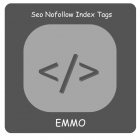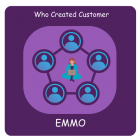Why Canonical Tags Matter for Your Magento 2 Store

Why Canonical Tags Matter for Your Magento 2 Store
In Magento 2, canonical tags are essential for improving your SEO and preventing issues with duplicate content. They tell search engines which version of a page is the "main" one, ensuring that your store's content is indexed correctly. Without them, multiple pages with similar or identical content might be seen as duplicates, which can hurt your rankings.
Table Of Content
Understanding Magento 2 Canonical Tags: Why They Matter for SEO
In simple terms, a canonical tag (or rel="canonical" tag) is an HTML element that directs web crawlers to the preferred version of a webpage. If multiple URLs lead to the same content, the canonical tag tells search engines which page to prioritize. This helps avoid duplicate content issues, which can hurt your website's SEO performance.
For example, consider these three URLs:
www.example.com/productabc
www.example.com/category1/productabc
www.example.com/filterxyz/productabc
All three URLs point to the same product, but without a canonical tag, search engines might treat them as separate pages. This could lead to duplicate content penalties, where the search engine either downgrades rankings or deindexes the pages, reducing your visibility in search results.
Canonical tags prevent this by consolidating the ranking signals from all similar pages into one preferred page, making it clear which version of the content should be ranked.
Why Are Canonical Tags Essential for Your Store?
Canonical tags are crucial for maintaining your store's search engine ranking and visibility. Without them, search engines might penalize your content for duplication, harming your SEO efforts. Proper use of canonical tags ensures that search engines correctly identify the page that should rank, keeping your rankings intact.
| Scenario | Without Canonical Tag | With Canonical Tag |
|---|---|---|
| Duplicate Content | Penalized or deindexed | Consolidated ranking |
| Search Engine Visibility | Decreased | Maintained |
| SEO Performance | Harmed | Enhanced |
How to Implement Canonical Tags in Magento 2
Magento 2 makes it easy to add canonical tags to your pages, especially for products with multiple URLs. You can implement them in the backend through the Magento Admin Panel under Catalog > SEO & Search. Proper setup ensures that search engines know which page to index, improving your site's SEO.
In conclusion, while canonical tags are just one element of SEO, they play a critical role in managing duplicate content and preserving your search engine rankings. Implement them properly, and you'll safeguard your Magento 2 store's visibility and avoid penalties.
Why Canonical Tags Matter for Magento 2 eCommerce Stores
Canonical tags are essential for eCommerce stores running on Magento 2, and they play a pivotal role in managing SEO. Here's why you should use them:
Prevent Duplicate Content Issues
Content duplication is a common issue in Magento 2 stores, especially with product sorting, filtering, pagination, and session IDs. When these elements generate multiple pages for the same product, search engines can't determine which page to prioritize. This dilutes your SEO efforts and could lead to Google indexing irrelevant pages. Implementing canonical tags ensures the search engine knows which version to rank, preventing this issuemize Crawl Budget**Search engine crawlers have a limited budget, meaning they can only crawl a certain number of pages within a given time. Without canonical tags, duplicate pages could take up a significant portion of that budget, leaving your most important pages unindexed. By adding canonical tags, you ensure that crawlers focus on your key pages, helping them rank higher .
Impct Page SEO
When duplicate versions of a product page are indexed, SEO authority gets divided, which can negatively impact rankings. Most search engine users tend to click only the top few results, so appearing further down the list decreases your chances of generating sales. Canonical tags help consolidate SEO value to one page, increasing the chances of ranking higher【9†source】.
Advanced options may include custom attribute variables and PHP scripting for dynamic feeds.
Enhance Usere
Users appreciate finding the right product page quickly. Without canonical tags, they may be faced with multiple links to the same product, which could be confusing. Additionally, the page that is correctly optimized for SEO is usually faster, which improves the overall user experience【9†source】.
4. Validate and Optimize
In summary, cags are a must-have tool for Magento 2 store owners. They resolve duplicate content issues, help manage your crawl budget, improve product page SEO, consolidate link equity, and enhance the user experience. These actions not only boost your SEO but also help increase organic traffic, ultimately leading to higher conversions. If you haven’t set up canonical tags yet, now’s the time to implement them for better SEO management in your Magento 2 store.
Tip
To enhance your eCommerce store’s performance with Magento, focus on optimizing site speed by utilizing Emmo themes and extensions. These tools are designed for efficiency, ensuring your website loads quickly and provides a smooth user experience. Start leveraging Emmo's powerful solutions today to boost customer satisfaction and drive sales!
FAQs
What Are Duplicate Content Issues in Magento 2?
Duplicate content in Magento 2 occurs when the same product or page can be accessed via multiple URLs. This typically happens due to product sorting, filtering, pagination, and session IDs. Search engines may struggle to determine which version to rank, potentially harming your store's SEO.
How Do Canonical Tags Fix Duplicate Content Issues in Magento 2?
Canonical tags point search engines to the preferred version of a page, ensuring that they know which URL to rank. By implementing canonical tags on duplicate pages, like those generated by filters or categories, you consolidate SEO efforts and avoid penalties for duplicate content.
What Is the Problem with Pagination in Magento 2?
Pagination can lead to crawling issues when search engines fail to prioritize the main category page over paginated ones. This wastes crawl budget and can negatively impact SEO performance, especially if multiple paginated pages are indexed.
How Can Canonical Tags Help with Pagination in Magento 2?
By adding canonical tags to paginated pages, you guide search engines to the correct version of a page. This helps crawlers focus on the main category page or the relevant page in the pagination sequence, improving crawl efficiency and SEO results.
Why Do HTTPS and WWW Versions of a Page Cause SEO Issues?
When a website has multiple versions, such as HTTPS vs. HTTP or www vs. non-www, search engines may treat them as separate pages, creating duplicate content issues. This can lead to lower rankings as search engines split the SEO value between the versions.
How Do Canonical Tags Resolve HTTPS and WWW Duplicate Content Issues?
Canonical tags allow you to specify the preferred version of a page, whether it’s the HTTPS or www version. This tells search engines which URL to prioritize, preventing duplicate content problems caused by these variations.
Why Is It Important to Use Canonical Tags on Category Pages?
Category pages often display the same products across multiple categories. Without canonical tags, search engines might treat these pages as duplicates. Using canonical tags ensures that search engines focus on the most relevant category page, boosting your SEO and visibility.
How Do CMS Pages Affect SEO and How Can Canonical Tags Help?
CMS pages like the homepage or "About Us" can cause SEO issues if not properly tagged. Adding canonical tags to these pages consolidates link equity and ensures search engines rank the most important version, preventing SEO dilution.
What Is the Role of Third-Party Extensions in Managing Canonical Tags in Magento 2?
While Magento 2 includes basic canonical tag functionality, third-party extensions offer enhanced features and greater control. These extensions can automate the tagging process for product, category, and CMS pages, ensuring better SEO management across your store.









